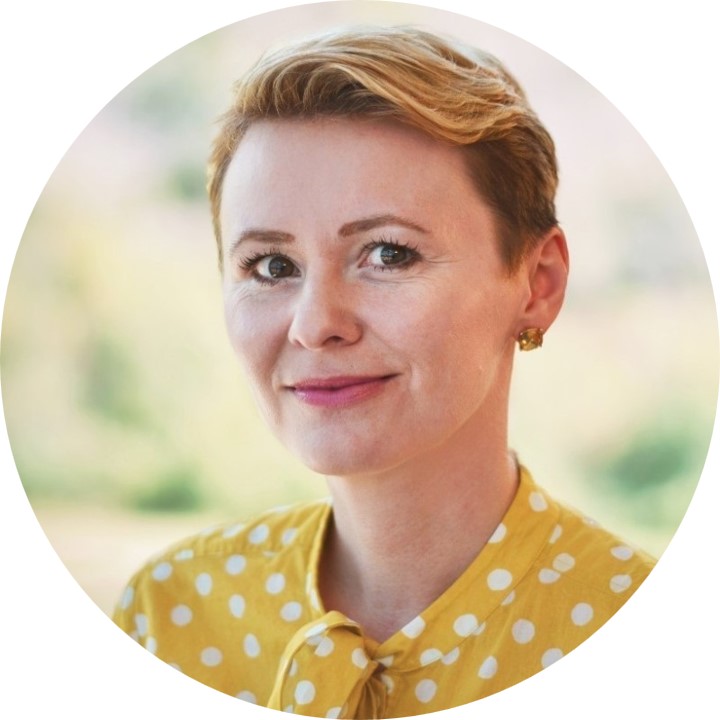
Today is the final day of Women’s History Month. At Finovate, we have spent the past 30+ days highlighting the accomplishments of women in our industry. We began our commemoration with a look at the women who would demo their companies’ latest technologies at FinovateEurope. We followed up on International Women’s Day, showcasing the women who would deliver mainstage keynote addresses at the conference. And just this week, we featured the winners of the “Female Founded/Owned” category of our Finovate Demo Scholarship program for fintech startups.
Today we share insights from Maggie O’Toole, Vice President of Strategic Partnerships at TabaPay. Headquartered in Mountain View, California, and founded in 2017, TabaPay is a specialist in real-time money movement. The company facilitates one million transactions every day, has more than 2,000 clients, and is the number seven ranked CNP (card-not-present) acquirer in the U.S.
We caught up with Ms. O’Toole to discuss her work at TabaPay, her experience as a female leader in fintech and financial services, and what needs to be done in order to enable more women to secure leadership roles in our industry.
Tell us about your background and current position at TabaPay.
Maggie O’Toole: When I graduated college and moved to the United States from Poland, I faced some of the biggest challenges of my life. Being an immigrant in a new country without speaking the language was a difficult experience, but it also ignited a fire in me to prove that I could succeed.

Over the past decade, I’ve dedicated myself to the payments industry, focusing on strategic partnerships that help businesses thrive. My time at Onbe was particularly impactful; I had the opportunity to lead the charge on launching new products and forging partnerships that enabled real-time payments. I’m proud to say that I played a pivotal role in helping Onbe grow from a startup to a scaled enterprise, while completing a successful M&A strategy.
Today, at TabaPay, I focus on maximizing value for our clients and positioning the company for long-term growth. Building solid relationships with clients, networks, and banks is at the heart of everything I do. I take pride in the fact that I’ve been able to establish a partner management department from scratch, which is set to quadruple in size by the end of the year.
My journey has been anything but easy, but it has shaped me into the leader I am today. I’m passionate about the payments industry and helping businesses succeed, and I’m excited to see where my journey will take me next.
What challenges have you faced as a woman in fintech, and how have you overcome them?
O’Toole: As a woman in fintech, I have faced various challenges throughout my career. I’m still amazed by the vast underrepresentation of women in leadership positions in the industry. This has made it more difficult to find role models or mentors who share similar experiences and can provide guidance and support.
Another challenge I have faced is the pervasive gender bias that exists in many aspects of the industry. This bias can manifest in subtle ways, such as being interrupted or talked over in meetings, or in more overt ways, such as being passed over for promotions or opportunities.
To overcome these challenges, I have sought out supportive networks of women in fintech and other industries. These networks have provided me with invaluable mentorship, advice, and opportunities for growth. I have also worked hard to advocate for myself and my accomplishments, and to challenge gender bias whenever I encounter it.
Furthermore, I have always prioritized my personal and professional development. I have sought training and education opportunities to improve my skills and knowledge, allowing me to excel in my role and advance my career despite these challenges.
How have these challenges shaped your leadership style?
O’Toole: My experiences as a woman in fintech have influenced my leadership style. I believe overcoming challenges and facing obstacles head-on has helped me become a stronger and more effective leader. By persevering through difficult times, I have developed a resilient and adaptable leadership style; I’m always ready to take on new challenges.
One way these challenges have shaped my leadership style is by making me a better communicator. I have learned the importance of clearly articulating the company’s vision and plan to my team, so everyone is on the same page and working towards the same goals. Additionally, I have become more empathetic and understanding of my team’s needs, providing them with the support and guidance they need to be successful. I truly believe that sound, repeatable, positive business results are a natural outcome of prioritizing our employees, clients, and partners through building trusted and safe relationships.
Finally, setbacks and failures have taught me to view them as learning opportunities and growth. I encourage my team to adopt a similar mindset and not to be afraid to take risks and make mistakes. I believe that taking pauses periodically and reflecting on where we are and where we’re headed as a team is essential for long-term success.
Overall, my experiences have made me a more effective and compassionate leader, and I am grateful for the lessons they have taught me.
What is your approach to building work environments and teams?
O’Toole: My approach to building work environments and teams is rooted in building strong relationships. As a leader, I believe it’s essential to take the time to understand the backgrounds, experiences, and perspectives of each team member to foster a culture of trust and mutual respect. By investing in these relationships, I aim to create an environment that empowers individuals to be their best selves and feel supported in their growth and development.
I strive to create a work environment that encourages collaboration, creativity, and innovation. This includes providing opportunities for open communication and feedback, as well as recognizing and celebrating individual and team achievements. Ultimately, I aim to build a team united by a common purpose and inspired to work towards a shared vision.
What are the most important qualities for women in leadership positions in fintech, and how can they develop these qualities?
O’Toole: As women in leadership positions in fintech, we have unique perspectives and valuable insights to bring to the table. We must have confidence in our abilities and not let anyone else define us or hold us back. We should proudly tell our stories, embrace our individuality, and be intentional with our time and energy.
To develop the necessary qualities for leadership, we should constantly be growing and learning, personally and professionally. We can bring new skills and lessons from our personal lives into our work and vice versa and remain open to new perspectives and opportunities for growth.
As leaders, we must be intentional about what we say “yes” to, knowing that every decision comes with trade-offs. We should prioritize our strengths and areas of expertise and allocate our time strategically to make the most significant impact on our teams and organizations. By doing so, we can create a more fulfilling and rewarding work environment for ourselves and those around us.
How do you see the role of women in fintech evolving over the next five years, and what are your thoughts on the industry’s progress toward gender parity?
O’Toole: The fintech industry has come a long way regarding gender parity, but much more work remains to be done. As a female leader in fintech, I’m confident that women will continue to play a pivotal role in shaping the industry over the next five years, and beyond.
Companies need to recognize the value of diversity and make a concerted effort to hire and promote female leaders. This is not about meeting quotas, but about creating a genuinely inclusive workforce that reflects the communities we serve. By empowering women to take risks, dream big, and believe in themselves, we can develop a culture of success that benefits everyone.
At TabaPay, I’m proud to be part of a team committed to diversity and inclusion. With 55% of our employees and 65% of our leadership identifying as women or non-binary, we’re setting a powerful example for the rest of the industry. In the years to come, I believe we’ll see even more significant progress as more companies recognize the critical importance of gender parity in fintech and beyond.